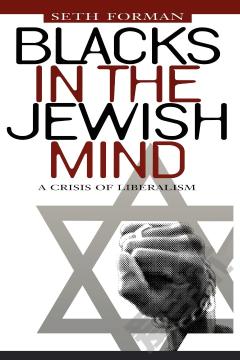Blacks in the Jewish Mind
Since the 1960s the relationship between Blacks and Jews has been a contentious one. While others have attempted to explain or repair the break-up of the Jewish alliance on civil rights, Seth Forman here sets out to determine what Jewish thinking on the subject of Black Americans reveals about Jewish identity in the U.S. Why did American Jews get involved in Black causes in the first place? What did they have to gain from it? And what does that tell us about American Jews? In an extremely provocative analysis, Forman argues that the commitment of American Jews to liberalism, and their historic definition of themselves as victims, has caused them to behave in ways that were defined as good for Blacks, but which in essence were contrary to Jewish interests. They have not been able to dissociate their needs--religious, spiritual, communal, political--from those of African Americans, and have therefore acted in ways which have threatened their own cultural vitality. Avoiding the focus on Black victimization and white racism that often infuses work on Blacks and Jews, Forman emphasizes the complexities inherent in one distinct white ethnic group's involvement in America's racial dilemma.
{{comment.content}}








 京公网安备 11010802027623号
京公网安备 11010802027623号